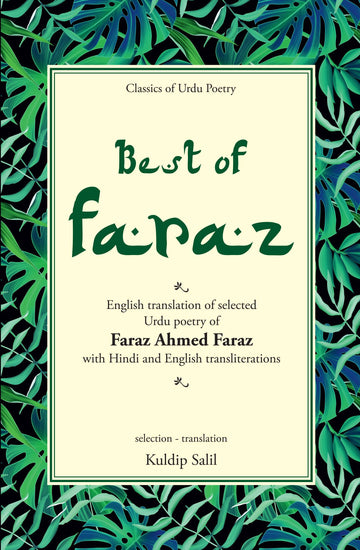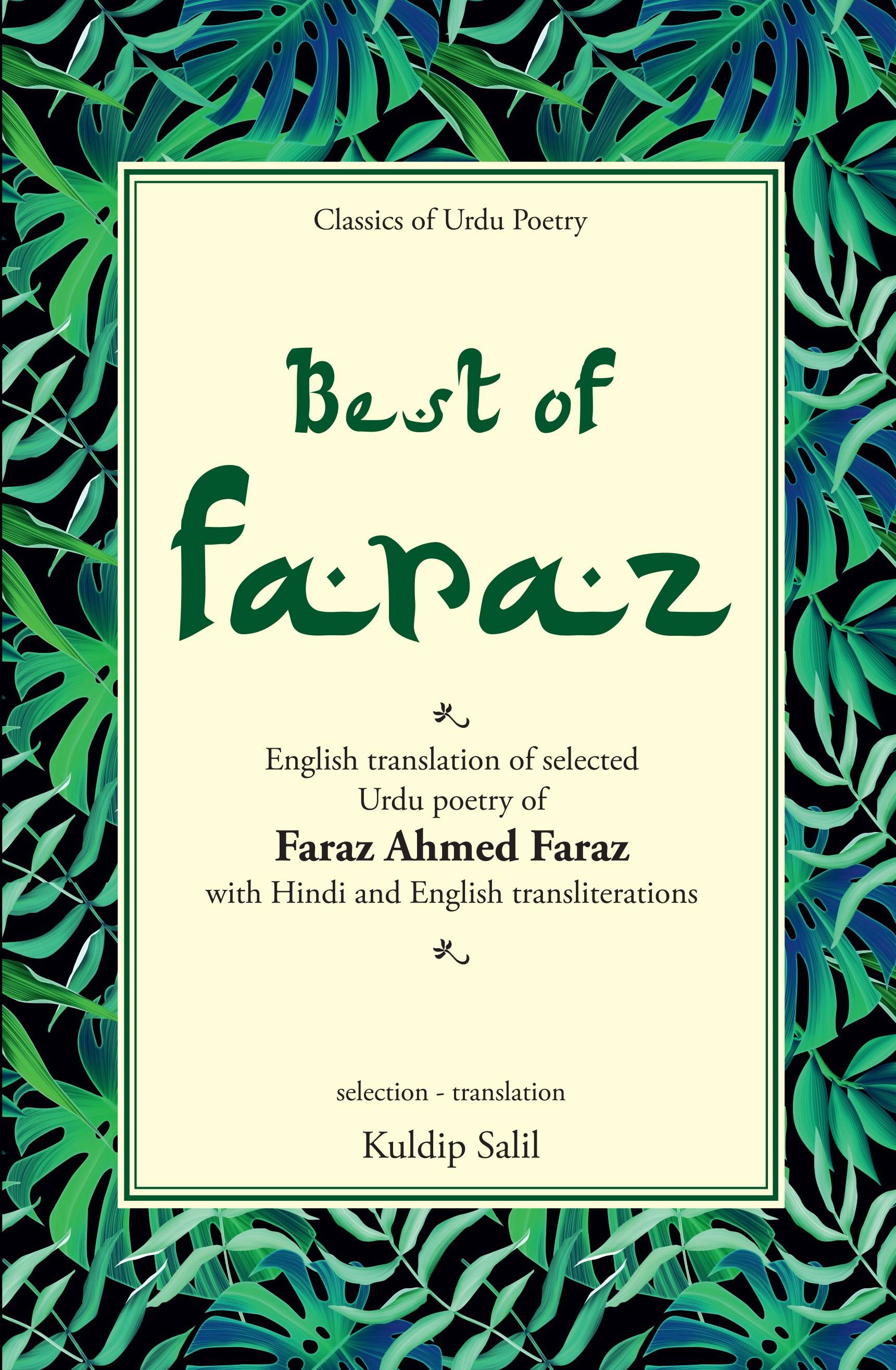Best of Faraz
| ISBN | 9788170000000 |
| Author | Kuldip Salil |
| Language | English |
| Publisher | Rajpal and Sons |
| Pages | 168 |
| Book Type | Hardbound |
| Dimensions | 21.5x13.9x1.0 cm |
| Publishing year | 0 |
| Edition | 2016 |
| Return Policy | 5 days Return and Exchange |

Best of Faraz
Ahmed Faraz is considered one of the greatest modern Urdu poets of the last century. Essentially a romantic poet, steeped in classical Persian and Urdu traditions, he combined the sensitivity and lyricism of the great Urdu poet Meer Taqi Meer and the philosophical range and depth of Mirza Ghalib, his poetry also reflected a progressive outlook. He is often compared to Faiz Ahmed Faiz for his simple style of writing because of which he became popular among common readers and connoisseurs of urdu poetry.Born on January 14, 1931 in Kohat (Pakistan) in a Pushto-speaking family, Faraz, started his career as a script writer for Radio Pakistan. Later he went into academics and also served as the director-general of the Pakistan Academy of Letters. Because of the long spells of dictatorship in Pakistan, Faraz often resorted to symbolism in his poetry to deliberately create an ambiguity so that his lines could be interpreted differently by different people, and mirrored a new kind of "political sensibility." Though Faraz wrote in Urdu, he did not hesitate from using Hindi words if they served his poetic purpose for he believed, "Hindi is close to Urdu, besides it enriches the language." Despite being known as a progressive poet, Faraz's most famous ghazal is a romantic one, "Ranjish hi sahi dil hii dukhaane ke liye aa." He died from kidney failure in Islamabad on 25 August, 2008.This book offers a selection of the best ghazals of Ahmed Faraz, translated into English by Kuldeep Salil. And to help you enjoy the richness and flavor of Urdu language, the original Urdu ghazals are transliterated and presented both in Roman and Devnagri scripts. Ahmed Faraz is considered one of the greatest modern Urdu poets of the last century. Essentially a romantic poet, steeped in classical Persian and Urdu traditions, he combined the sensitivity and lyricism of the great Urdu poet Meer Taqi Meer and the philosophical range and depth of Mirza Ghalib, his poetry also reflected a progressive outlook. He is often compared to Faiz Ahmed Faiz for his simple style of writing because of which he became popular among common readers and connoisseurs of urdu poetry. Born on January 14, 1931 in Kohat (Pakistan) in a Pushto-speaking family, Faraz, started his career as a script writer for Radio Pakistan. Later he went into academics and also served as the director-general of the Pakistan Academy of Letters. Because of the long spells of dictatorship in Pakistan, Faraz often resorted to symbolism in his poetry to deliberately create an ambiguity so that his lines could be interpreted differently by different people, and mirrored a new kind of political sensibility. Though Faraz wrote in Urdu, he did not hesitate from using Hindi words if they served his poetic purpose for he believed, Hindi is close to Urdu, besides it enriches the language. Despite being known as a progressive poet, Faraz's most famous ghazal is a romantic one, Ranjish hi sahi dil hii dukhaane ke liye aa. He died from kidney failure in Islamabad on 25 August, 2008. This book offers a selection of the best ghazals of Ahmed Faraz, translated into English by Kuldeep Salil. And to help you enjoy the richness and flavor of Urdu language, the original Urdu ghazals are transliterated and presented both in Roman and Devnagri scripts.
- Sabr– Your order is usually dispatched within 24 hours of placing the order.
- Raftaar– We offer express delivery, typically arriving in 2-5 days. Please keep your phone reachable.
- Sukoon– Easy returns and replacements within 5 days.
- Dastoor– COD and shipping charges may apply to certain items.
Use code FIRSTORDER to get 5% off your first order.
You can also Earn up to 10% Cashback with POP Coins and redeem it in your future orders.








